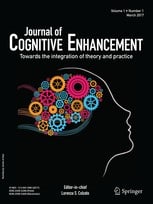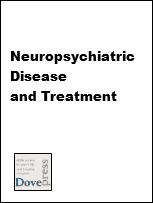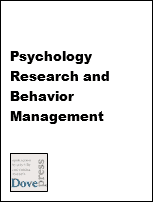Research on NWA South Programs
At LearningRx, we’ve put more than 35 years of brain training research, development, and testing into our programs.
That process continues to this day through our partnership with the Gibson Institute of Cognitive Research. Launched in 2014 by our founder, Dr. Ken Gibson, the Gibson Institute performs pioneering research on cognitive training and development.
Below, you’ll find brain training studies, articles, and presentations that analyze the impact of LearningRx programs.
- Brain Training Results
- Peer-Reviewed Articles
- Scientific Conference Presentations
- Dissertations & Technical Reports
Watch Dr. Christina Ledbetter of the Gibson Institute explain how brain training works:
Watch Dr. Amy Lawson Moore share lessons learned from training 101,000 brains:
This study with 178 students ages 5-18 investigated whether ThinkRx and ReadRx clinician-delivered cognitive training programs reduced academic difficulties and oppositional behavior for school-age children with learning struggles compared to a control group. Results indicated there were statistically significant differences overall between the intervention groups and the control group on all measures of academic difficulties. Both intervention groups saw a reduction in academic difficulty ratings following training while the control group saw an increase in academic difficulty during a comparable time interval. Both intervention groups achieved
LearningRx Brain Training Results
As part of our brain training research, we collect before-and-after test scores from LearningRx graduates. Between 2010 and 2021, we gathered data from more than 27,433 students, including kids and adults who completed LearningRx programs.
Our results show the impact of brain training on past clients — including significant average improvements in all of the brain’s core learning and thinking skills.
Check out our brain training results to see data gathered from 27,433 students!
Peer-Reviewed Articles
A Real-World Data Study on the Impact of the ReadRx Cognitive Training and Reading Intervention on Cognition, Basic Reading Ability, and Psychosocial Skills for 3,527 Children.
Psychology Research and Behavior Management, 16, 1195-1220.
https://doi.org/10.2147/PRBM.S397665
Authors: Moore, A.L., Miller, T.M., Moore, J.J., & Ledbetter, C. (2023).
In this study, researchers analyzed a large real-world dataset to examine cognitive, reading, and behavioral outcomes for struggling readers (n = 3527) who had completed 24 weeks (120 hours) of ReadRx, an intense cognitive training integrated with a structured literacy intervention using ReadRx in a one-on-one clinic setting. Results showed statistically significant changes on all cognitive and reading measures including attention, visual processing, processing speed, long-term memory, working memory, reasoning, phonological awareness, Work Attack, phonetic coding, spelling, comprehension, and overall IQ score with medium to very large effect sizes. The results included an average 4.1-year gain in reading skills including a 6-year gain in phonological awareness. No differences were found based on age, sex, or ADHD status, and minimal differences were found based on pre-intervention IQ score and cognitive test scores. The study also included a qualitative thematic analysis of parent-reported behavioral outcomes revealing themes of improved cognition, academic performance, and psychosocial skills including confidence and perseverance.
Remote vs. In-Person Delivery of LearningRx One-on-One Cognitive Training During the COVID-19 Pandemic: A Non-inferiority Study.
Frontiers in Psychology, 12, 749898.
doi.org/10.3389/fpsyg.2021.749898
Authors: Moore, A.L., Miller, T.M., & Ledbetter, C. (2021).
The study compared remote delivery to in-person delivery of ThinkRx cognitive training during 2020. The sample included 381 child and adult clients from 18 cognitive training centers. One group (n = 178, mean age = 12.3) received traditional in-person delivery of cognitive training. The second group (n = 203, mean age = 11.7) received remote delivery of one-on-one cognitive training via Zoom. Paired samples t tests revealed significant differences from pretest to post-test across all constructs for both groups. After Bonferroni correction, MANOVA revealed no significant difference between the two intervention groups on any of the subtests. Non-inferiority analyses indicated remote delivery is not inferior to in-person delivery on the primary outcome measure of overall IQ score along with processing speed, fluid reasoning, long-term memory, and visual processing. Although in-person training results were slightly higher than remote training results, the current study reveals remote delivery of cognitive training during COVID-19 was a viable alternative to in-person delivery of cognitive training.
Reliability Evidence for the Gibson Assessment of Cognitive Skills (GACS): A Brief Tool for Screening Cognitive Skills Across the Lifespan.
Psychology Research and Behavior Management, 14, 31-40
doi.org/10.2147/PRBM.S291574
Authors: Moore, A.L., Miller, T.M., & Ledbetter, C. (2021).
The aim of the current study was to examine and report three sources of reliability evidence for the Gibson Assessment of Cognitive Skills, a paper-based, brief cognitive screening tool for children and adults measuring working memory, processing speed, visual processing, logic and reasoning, and three auditory processing constructs: sound blending, sound segmenting, sound deletion along with work attack skills. Overall coefficient alphas range from 0.80 to 0.94, producing a strong source of internal consistency reliability evidence. The split-half reliability coefficients ranged from 0.83 to 0.96 overall, producing a strong second source of reliability evidence. Across all ages, the test–retest reliability coefficients ranged from 0.83 to 0.98. The evidence collected for the current study suggests that the GACS is a reliable brief screening tool for assessing cognitive skill performance in both children and adults.
Neuroimaging and Neuropsychological Outcomes Following Clinician-Delivered Cognitive Training for Six Patients with Mild Brain Injury: A Multiple Case Study.
Frontiers in Human Neuroscience, 14(229), 1-15.
doi:10.3389/fnhum.2020.00229
Authors: Moore, A.L., Carpenter, D., James, R., Miller, T., Moore, J., Disbrow, E., & Ledbetter, C. (2020).
In this series of clinical case studies, we explored the statistical and clinical significance of cognitive changes and transfer of training to real-life functioning and changes in the brain following 60 hours of LearningRx training for six patients with mild traumatic brain injury (TBI) or non-traumatic acquired brain injury (ABI). All cognitive test scores showed improvement with statistically significant changes on long-term memory, processing speed, reasoning, auditory processing, and overall IQ score. The mean change in IQ score was 20 points. Patients reported improvements in cognition, mood, social identity, work and school performance, and Instrumental Activities of Daily Living (IADLs). With fMRI, we documented 10 significant region-to-region changes in connectivity and three significant correlations between changes in IQ score and change in white matter structure.
Ethical Considerations and Lessons Learned in a Randomized Controlled Trial of Thinkrx Cognitive Training for Children with Learning Disabilities and/or ADHD.
SAGE Research Methods Cases.
doi:10.4135/9781529734072
Authors: Moore, A., & Ledbetter, C. (2020).
In a randomized controlled trial, we examined the efficacy of ThinkRx, a clinician-delivered cognitive training program delivered to children with learning disabilities and/or ADHD. In this case review, we discuss the ethical considerations for using a waitlist control group instead of a sham intervention in lengthy behavioral interventions with a vulnerable population. We describe the control group options we considered and why we selected waitlist controls. We report our quantitative and qualitative outcomes from two articles published on this study including statistically significant differences in eight of the nine measures, clinically significant changes in IQ score for the ADHD subset, and parent-reported improvements in self-esteem, self-discipline, cooperative behaviors, and school performance.
Feasibility of a Functional Medicine Approach to Slowing Clinical Cognitive Decline in Patients Over Age 55: A Multiple Case Study Report.
OBM Integrative and Complementary Medicine, 4(3).
doi: 10.21926/obm.icm.1903054

Authors: James, R., Moore, A.L., Carpenter, D., Miller, T., & Ledbetter, C. (2019).
This study examined a multifaceted anti-neuroinflammatory intervention that included physical exercise, mental exercise, grain-free/sugar-free diet, anti-inflammatory nutritional supplements, sleep optimization, and stress management within the context of a functional medicine practice for five patients with varying levels of cognitive impairment. In a prospective chart review, we examined impact measures including assessment of (1) cognitive skills, (2) brain connectivity, and (3) daily functioning. Three of the five patients were no longer classified as cognitively impaired, while a fourth patient improved from moderately-to-severely impaired to mildly impaired. Patients reported improved memory, mental clarity, and outlook on life. fMRI analyses revealed changes in brain connectivity and efficiency. The current study provides preliminary support for and feasibility of the use of a multi-component approach to slowing cognitive decline.
The Promise of Clinician-Delivered Cognitive Training for Children Diagnosed with ADHD.
Journal of Mental Health and Clinical Psychology, 3(3), 3-8.
doi: 10.29245/2578-2959/2019/3.1180

Authors: Moore, A.L., & Ledbetter, C. (2019).
Mainstream approaches to treating Attention Deficit Hyperactivity Disorder in children include stimulant medication such as methylphenidate and behavior therapy that target deficits in attention as well as inappropriate behaviors but do not sufficiently address the multiple cognitive deficits associated with the disorder. Deficits beyond attention have been identified in ADHD including working memory, long-term memory, and processing speed. As key elements of cognition and intelligence that contribute to thinking and learning, these are critical deficits found in children with ADHD that must be addressed. In this review article, we discuss existing research on cognitive training interventions for ADHD and evaluate their ability to target these multiple cognitive deficits as well as their ability to promote self-efficacy, social cognition, and motivation during training. We describe research on LearningRx, a clinician-delivered cognitive training intervention and suggest that human delivery enhances motivation and promotes social cognition and self-efficacy while strengthening weak cognitive skills associated with ADHD in children.
ThinkRx Cognitive Training for Adults over Age 50: Clinician-Caregiver Partners in Delivery as Effective as Clinician-Only Delivery.
Psychology and Neuroscience, 12(2), 291-306.
doi: 10.1037/pne0000162
Authors: Moore, A.L., Carpenter, D.M., Miller, T.M., & Ledbetter, C., (2019).
The aim of the study was to evaluate differences in cognitive outcomes and self-reported real-life improvements between two methods of delivering the ThinkRx® cognitive training intervention: professional delivery solely by a clinician versus a partnership model where a caregiver or spouse delivers half of the intervention at home. The sample included 292 participants ranging in age from 51 to 95 with subjective memory or attention complaints. Participants completed an average of 79 training hours. The results showed no significant differences between delivery methods on any of the cognitive skills measured, and few remarkable differences in self-reported real-life improvements. Both delivery methods resulted in significant pretest to post-test gains across all six cognitive skills measured including working memory, long-term memory, processing speed, visual processing, auditory processing, and fluid reasoning, as well as self-reported improvements in five key areas: mood, memory, cognitive efficiency, life application skills, and focus/attention. Caveats include the need for caregivers to be motivated enough and cognitively sharp enough themselves to help deliver the program.
Comparing Two Methods of Delivering ThinkRx Cognitive Training to Children Ages 8-14: A Randomized Controlled Trial of Equivalency.
Journal of Cognitive Enhancement, 3(3), 261-270.
doi.org/10.1007/s41465-018-0094-z

Authors: Moore, A.L., Carpenter, D.M., Miller, T.M., & Ledbetter, C. (2019).
In a randomized controlled trial assessing equivalence of parallel groups of children ages 8-14, we compared cognitive outcomes between a group who received 60 hours of ThinkRx cognitive training delivered one-on-one by a clinician (n = 20) versus a group of children who received 30 hours of ThinkRx delivered by a clinician and the remaining 30 hours through supervised digital training procedures in a computer lab (n = 18). Results showed no significant differences between groups on tests of working memory, logic and reasoning, auditory processing, visual processing, processing speed, or overall IQ score. Results were significantly different on the test of long-term memory. These results suggest that both delivery models are nearly equivalent delivery methods of ThinkRx cognitive training for children. This study controlled for placebo effects because both groups attended the same number of sessions and spent the same number of hours in training (60) with an adult present. Finally, this was a single-blind study. The participants did not know there was a difference in training methods.
Clinician-Delivered Cognitive Training for Children with Attention Problems: Effects on Cognition and Behavior from the ThinkRx Randomized Controlled Trial.
Neuropsychiatric Disease and Treatment, 14, 1671-1683.
doi: 10.2147/NDT.S165418

Authors: Moore, A.L., Carpenter, D.M., Ledbetter, C., & Miller, T.M. (2018).
In a randomized controlled study, we examined the effects of a one-on-one cognitive training program on memory, visual and auditory processing, processing speed, reasoning, attention, overall IQ score, and behavior for students ages 8-14 with ADHD. Results included greater pretest to post-test change scores on all variables for the treatment group versus the control group with statistically significant differences noted in working memory, long-term memory, logic and reasoning, auditory processing, and IQ score. Qualitative outcomes included far transfer to cognition and behavior as reported by participants, parents, and clinicians.
Neuroimaging Outcomes of a Cognitive Rehabilitation Training Program.
Journal of Neuroimaging, 28(2), 225-233.
doi: 10.1111/jon.12507
Authors: Ledbetter, C., & Moore, A. (2018).
To investigate if aberrant brain connectivity and changes in brain connectivity (a neuroimaging marker of neuroplasticity), were evident prior to and after completion of a robust cognitive training program, a series of case studies were carried out in subjects with varying degrees of traumatic brain injuries (n = 5) and cognitive impairment (n = 5). MR exams were acquired on all subjects prior to and upon completion of the ThinkRx cognitive training program. In addition to MR exams, all subjects completed pre-post neuropsychological testing (WJ-IV) and condition-specific rating scales. For all cases, neuropsychological testing and qualitative outcomes measures increased, supporting that the robustness of the training program held for each imaged case study. Normalization of DMN connectivity, including decreased hyperconnectivity and reoccurrence of anticorrelated activity, was evident in the most severe TBI case. At the group level, significant training-induced changes in neural connectivity were identified.
Reliability and Validity of the Revised Gibson Test of Cognitive Skills, a Computer-Based Test Battery for Assessing Cognition Across the Lifespan.
Psychology Research and Behavior Management, 11, 25-35.
doi:10.2147/PRBM.S152781

Authors: Moore, A.L., & Miller, T. (2018).
This study evaluated the validity and reliability of the revised Gibson Test of Cognitive Skills, a computer-based battery of tests measuring short-term memory, long-term memory, processing speed, logic and reasoning, visual processing, as well as auditory processing and Word Attack skills. The sample for the study included 2,737 participants ranging in age from 5 to 85. Results indicated strong sources of evidence of validity and reliability for the test, including test-retest reliability coefficients ranging from .69-.91, split-half reliability coefficients ranging from .87 to .91, and concurrent validity coefficients ranging from .53 to .93. The Gibson Test of Cognitive Skills -2 is a reliable and valid tool for assessing cognition in the general population across the lifespan.
LearningRx Cognitive Training for Children and Adolescents Ages 5-18: Effects on Academic Skills, Behavior, and Cognition.
Frontiers in Education, 2(62).
doi: 10.3389/feduc.2017.00062

Author: Jedlicka, E. (2017)
This study with 178 students ages 5-18 investigated whether ThinkRx and ReadRx clinician-delivered cognitive training programs reduced academic difficulties and oppositional behavior for school-age children with learning struggles compared to a control group. Results indicated there were statistically significant differences overall between the intervention groups and the control group on all measures of academic difficulties. Both intervention groups saw a reduction in academic difficulty ratings following training while the control group saw an increase in academic difficulty during a comparable time interval. Both intervention groups achieved
LearningRx Brain Training Results
As part of our brain training research, we collect before-and-after test scores from LearningRx graduates. Between 2010 and 2021, we gathered data from more than 27,433 students, including kids and adults who completed LearningRx programs.
Our results show the impact of brain training on past clients — including significant average improvements in all of the brain’s core learning and thinking skills.
Check out our brain training results to see data gathered from 27,433 students!
Peer-Reviewed Articles
A Real-World Data Study on the Impact of the ReadRx Cognitive Training and Reading Intervention on Cognition, Basic Reading Ability, and Psychosocial Skills for 3,527 Children.
Psychology Research and Behavior Management, 16, 1195-1220.
https://doi.org/10.2147/PRBM.S397665
Authors: Moore, A.L., Miller, T.M., Moore, J.J., & Ledbetter, C. (2023).
In this study, researchers analyzed a large real-world dataset to examine cognitive, reading, and behavioral outcomes for struggling readers (n = 3527) who had completed 24 weeks (120 hours) of ReadRx, an intense cognitive training integrated with a structured literacy intervention using ReadRx in a one-on-one clinic setting. Results showed statistically significant changes on all cognitive and reading measures including attention, visual processing, processing speed, long-term memory, working memory, reasoning, phonological awareness, Work Attack, phonetic coding, spelling, comprehension, and overall IQ score with medium to very large effect sizes. The results included an average 4.1-year gain in reading skills including a 6-year gain in phonological awareness. No differences were found based on age, sex, or ADHD status, and minimal differences were found based on pre-intervention IQ score and cognitive test scores. The study also included a qualitative thematic analysis of parent-reported behavioral outcomes revealing themes of improved cognition, academic performance, and psychosocial skills including confidence and perseverance.
Remote vs. In-Person Delivery of LearningRx One-on-One Cognitive Training During the COVID-19 Pandemic: A Non-inferiority Study.
Frontiers in Psychology, 12, 749898.
doi.org/10.3389/fpsyg.2021.749898
Authors: Moore, A.L., Miller, T.M., & Ledbetter, C. (2021).
The study compared remote delivery to in-person delivery of ThinkRx cognitive training during 2020. The sample included 381 child and adult clients from 18 cognitive training centers. One group (n = 178, mean age = 12.3) received traditional in-person delivery of cognitive training. The second group (n = 203, mean age = 11.7) received remote delivery of one-on-one cognitive training via Zoom. Paired samples t tests revealed significant differences from pretest to post-test across all constructs for both groups. After Bonferroni correction, MANOVA revealed no significant difference between the two intervention groups on any of the subtests. Non-inferiority analyses indicated remote delivery is not inferior to in-person delivery on the primary outcome measure of overall IQ score along with processing speed, fluid reasoning, long-term memory, and visual processing. Although in-person training results were slightly higher than remote training results, the current study reveals remote delivery of cognitive training during COVID-19 was a viable alternative to in-person delivery of cognitive training.
Reliability Evidence for the Gibson Assessment of Cognitive Skills (GACS): A Brief Tool for Screening Cognitive Skills Across the Lifespan.
Psychology Research and Behavior Management, 14, 31-40
doi.org/10.2147/PRBM.S291574
Authors: Moore, A.L., Miller, T.M., & Ledbetter, C. (2021).
The aim of the current study was to examine and report three sources of reliability evidence for the Gibson Assessment of Cognitive Skills, a paper-based, brief cognitive screening tool for children and adults measuring working memory, processing speed, visual processing, logic and reasoning, and three auditory processing constructs: sound blending, sound segmenting, sound deletion along with work attack skills. Overall coefficient alphas range from 0.80 to 0.94, producing a strong source of internal consistency reliability evidence. The split-half reliability coefficients ranged from 0.83 to 0.96 overall, producing a strong second source of reliability evidence. Across all ages, the test–retest reliability coefficients ranged from 0.83 to 0.98. The evidence collected for the current study suggests that the GACS is a reliable brief screening tool for assessing cognitive skill performance in both children and adults.
Neuroimaging and Neuropsychological Outcomes Following Clinician-Delivered Cognitive Training for Six Patients with Mild Brain Injury: A Multiple Case Study.
Frontiers in Human Neuroscience, 14(229), 1-15.
doi:10.3389/fnhum.2020.00229
Authors: Moore, A.L., Carpenter, D., James, R., Miller, T., Moore, J., Disbrow, E., & Ledbetter, C. (2020).
In this series of clinical case studies, we explored the statistical and clinical significance of cognitive changes and transfer of training to real-life functioning and changes in the brain following 60 hours of LearningRx training for six patients with mild traumatic brain injury (TBI) or non-traumatic acquired brain injury (ABI). All cognitive test scores showed improvement with statistically significant changes on long-term memory, processing speed, reasoning, auditory processing, and overall IQ score. The mean change in IQ score was 20 points. Patients reported improvements in cognition, mood, social identity, work and school performance, and Instrumental Activities of Daily Living (IADLs). With fMRI, we documented 10 significant region-to-region changes in connectivity and three significant correlations between changes in IQ score and change in white matter structure.
Ethical Considerations and Lessons Learned in a Randomized Controlled Trial of Thinkrx Cognitive Training for Children with Learning Disabilities and/or ADHD.
SAGE Research Methods Cases.
doi:10.4135/9781529734072
Authors: Moore, A., & Ledbetter, C. (2020).
In a randomized controlled trial, we examined the efficacy of ThinkRx, a clinician-delivered cognitive training program delivered to children with learning disabilities and/or ADHD. In this case review, we discuss the ethical considerations for using a waitlist control group instead of a sham intervention in lengthy behavioral interventions with a vulnerable population. We describe the control group options we considered and why we selected waitlist controls. We report our quantitative and qualitative outcomes from two articles published on this study including statistically significant differences in eight of the nine measures, clinically significant changes in IQ score for the ADHD subset, and parent-reported improvements in self-esteem, self-discipline, cooperative behaviors, and school performance.
Feasibility of a Functional Medicine Approach to Slowing Clinical Cognitive Decline in Patients Over Age 55: A Multiple Case Study Report.
OBM Integrative and Complementary Medicine, 4(3).
doi: 10.21926/obm.icm.1903054

Authors: James, R., Moore, A.L., Carpenter, D., Miller, T., & Ledbetter, C. (2019).
This study examined a multifaceted anti-neuroinflammatory intervention that included physical exercise, mental exercise, grain-free/sugar-free diet, anti-inflammatory nutritional supplements, sleep optimization, and stress management within the context of a functional medicine practice for five patients with varying levels of cognitive impairment. In a prospective chart review, we examined impact measures including assessment of (1) cognitive skills, (2) brain connectivity, and (3) daily functioning. Three of the five patients were no longer classified as cognitively impaired, while a fourth patient improved from moderately-to-severely impaired to mildly impaired. Patients reported improved memory, mental clarity, and outlook on life. fMRI analyses revealed changes in brain connectivity and efficiency. The current study provides preliminary support for and feasibility of the use of a multi-component approach to slowing cognitive decline.
The Promise of Clinician-Delivered Cognitive Training for Children Diagnosed with ADHD.
Journal of Mental Health and Clinical Psychology, 3(3), 3-8.
doi: 10.29245/2578-2959/2019/3.1180

Authors: Moore, A.L., & Ledbetter, C. (2019).
Mainstream approaches to treating Attention Deficit Hyperactivity Disorder in children include stimulant medication such as methylphenidate and behavior therapy that target deficits in attention as well as inappropriate behaviors but do not sufficiently address the multiple cognitive deficits associated with the disorder. Deficits beyond attention have been identified in ADHD including working memory, long-term memory, and processing speed. As key elements of cognition and intelligence that contribute to thinking and learning, these are critical deficits found in children with ADHD that must be addressed. In this review article, we discuss existing research on cognitive training interventions for ADHD and evaluate their ability to target these multiple cognitive deficits as well as their ability to promote self-efficacy, social cognition, and motivation during training. We describe research on LearningRx, a clinician-delivered cognitive training intervention and suggest that human delivery enhances motivation and promotes social cognition and self-efficacy while strengthening weak cognitive skills associated with ADHD in children.
ThinkRx Cognitive Training for Adults over Age 50: Clinician-Caregiver Partners in Delivery as Effective as Clinician-Only Delivery.
Psychology and Neuroscience, 12(2), 291-306.
doi: 10.1037/pne0000162
Authors: Moore, A.L., Carpenter, D.M., Miller, T.M., & Ledbetter, C., (2019).
The aim of the study was to evaluate differences in cognitive outcomes and self-reported real-life improvements between two methods of delivering the ThinkRx® cognitive training intervention: professional delivery solely by a clinician versus a partnership model where a caregiver or spouse delivers half of the intervention at home. The sample included 292 participants ranging in age from 51 to 95 with subjective memory or attention complaints. Participants completed an average of 79 training hours. The results showed no significant differences between delivery methods on any of the cognitive skills measured, and few remarkable differences in self-reported real-life improvements. Both delivery methods resulted in significant pretest to post-test gains across all six cognitive skills measured including working memory, long-term memory, processing speed, visual processing, auditory processing, and fluid reasoning, as well as self-reported improvements in five key areas: mood, memory, cognitive efficiency, life application skills, and focus/attention. Caveats include the need for caregivers to be motivated enough and cognitively sharp enough themselves to help deliver the program.
Comparing Two Methods of Delivering ThinkRx Cognitive Training to Children Ages 8-14: A Randomized Controlled Trial of Equivalency.
Journal of Cognitive Enhancement, 3(3), 261-270.
doi.org/10.1007/s41465-018-0094-z

Authors: Moore, A.L., Carpenter, D.M., Miller, T.M., & Ledbetter, C. (2019).
In a randomized controlled trial assessing equivalence of parallel groups of children ages 8-14, we compared cognitive outcomes between a group who received 60 hours of ThinkRx cognitive training delivered one-on-one by a clinician (n = 20) versus a group of children who received 30 hours of ThinkRx delivered by a clinician and the remaining 30 hours through supervised digital training procedures in a computer lab (n = 18). Results showed no significant differences between groups on tests of working memory, logic and reasoning, auditory processing, visual processing, processing speed, or overall IQ score. Results were significantly different on the test of long-term memory. These results suggest that both delivery models are nearly equivalent delivery methods of ThinkRx cognitive training for children. This study controlled for placebo effects because both groups attended the same number of sessions and spent the same number of hours in training (60) with an adult present. Finally, this was a single-blind study. The participants did not know there was a difference in training methods.
Clinician-Delivered Cognitive Training for Children with Attention Problems: Effects on Cognition and Behavior from the ThinkRx Randomized Controlled Trial.
Neuropsychiatric Disease and Treatment, 14, 1671-1683.
doi: 10.2147/NDT.S165418

Authors: Moore, A.L., Carpenter, D.M., Ledbetter, C., & Miller, T.M. (2018).
In a randomized controlled study, we examined the effects of a one-on-one cognitive training program on memory, visual and auditory processing, processing speed, reasoning, attention, overall IQ score, and behavior for students ages 8-14 with ADHD. Results included greater pretest to post-test change scores on all variables for the treatment group versus the control group with statistically significant differences noted in working memory, long-term memory, logic and reasoning, auditory processing, and IQ score. Qualitative outcomes included far transfer to cognition and behavior as reported by participants, parents, and clinicians.
Neuroimaging Outcomes of a Cognitive Rehabilitation Training Program.
Journal of Neuroimaging, 28(2), 225-233.
doi: 10.1111/jon.12507
Authors: Ledbetter, C., & Moore, A. (2018).
To investigate if aberrant brain connectivity and changes in brain connectivity (a neuroimaging marker of neuroplasticity), were evident prior to and after completion of a robust cognitive training program, a series of case studies were carried out in subjects with varying degrees of traumatic brain injuries (n = 5) and cognitive impairment (n = 5). MR exams were acquired on all subjects prior to and upon completion of the ThinkRx cognitive training program. In addition to MR exams, all subjects completed pre-post neuropsychological testing (WJ-IV) and condition-specific rating scales. For all cases, neuropsychological testing and qualitative outcomes measures increased, supporting that the robustness of the training program held for each imaged case study. Normalization of DMN connectivity, including decreased hyperconnectivity and reoccurrence of anticorrelated activity, was evident in the most severe TBI case. At the group level, significant training-induced changes in neural connectivity were identified.
Reliability and Validity of the Revised Gibson Test of Cognitive Skills, a Computer-Based Test Battery for Assessing Cognition Across the Lifespan.
Psychology Research and Behavior Management, 11, 25-35.
doi:10.2147/PRBM.S152781

Authors: Moore, A.L., & Miller, T. (2018).
This study evaluated the validity and reliability of the revised Gibson Test of Cognitive Skills, a computer-based battery of tests measuring short-term memory, long-term memory, processing speed, logic and reasoning, visual processing, as well as auditory processing and Word Attack skills. The sample for the study included 2,737 participants ranging in age from 5 to 85. Results indicated strong sources of evidence of validity and reliability for the test, including test-retest reliability coefficients ranging from .69-.91, split-half reliability coefficients ranging from .87 to .91, and concurrent validity coefficients ranging from .53 to .93. The Gibson Test of Cognitive Skills -2 is a reliable and valid tool for assessing cognition in the general population across the lifespan.
LearningRx Cognitive Training for Children and Adolescents Ages 5-18: Effects on Academic Skills, Behavior, and Cognition.
Frontiers in Education, 2(62).
doi: 10.3389/feduc.2017.00062

Author: Jedlicka, E. (2017)
This study with 178 students ages 5-18 investigated whether ThinkRx and ReadRx clinician-delivered cognitive training programs reduced academic difficulties and oppositional behavior for school-age children with learning struggles compared to a control group. Results indicated there were statistically significant differences overall between the intervention groups and the control group on all measures of academic difficulties. Both intervention groups saw a reduction in academic difficulty ratings following training while the control group saw an increase in academic difficulty during a comparable time interval. Both intervention groups achieved








